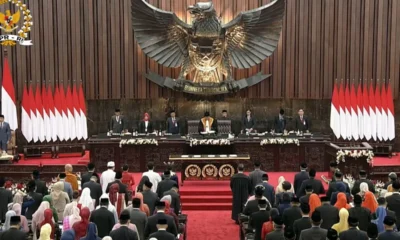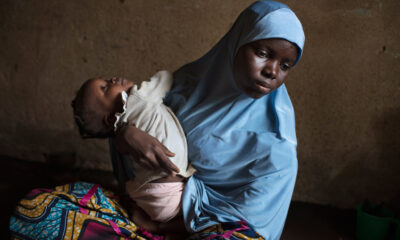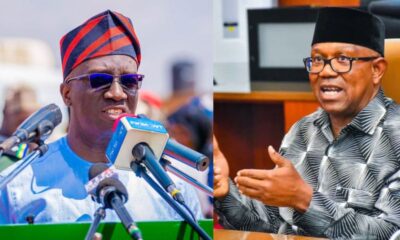Africa
Nigeria at 65: A Nation at the Crossroads -By Abba Dukawa
We now celebrate independence amidst hardship, hunger, and desolation — battling to survive in a country where prices have skyrocketed due to unchecked profiteering. What the masses are enduring today is reminiscent of the suffering of the late 1980s.

As the nation marks its 65th year of independence, we find ourselves in a state of disillusionment. While we celebrate our statehood, our leaders continue to take citizens for granted — largely due to the failure of the populace to make concerted efforts to demand accountability and ensure that the right thing is done.
We are at a crossroads: we can either celebrate blindly or reflect soberly on the major challenges that have plagued us as a people and a nation. It is critical to examine the role of followership. Every Nigerian is a stakeholder and, therefore, has a duty to rescue the nation from the grip of poor leadership.
The success or failure of leadership does not occur in isolation. Both leaders and followers share the blame for the state’s failures. The uncritical support given to leaders — allowing them to act with impunity — reflects the complicity of the citizenry.
Our leaders have mastered the art of manipulation to the extent that even civil society groups, professional bodies, and religious organizations have fallen under their spell. These institutions, once considered beacons of rationality and advocacy, now appear subdued. The greater burden, however, lies on the followers — the masses — who have allowed themselves to be manipulated, deceived, used, and discarded by those elected to protect their interests.
Nigerians have endured immense disappointment over the past six decades. Almost every sector is in a state of decay — a direct result of the lack of political will among leaders and the absence of proactive citizenship.
As we commemorate another Independence Day, the reality on the ground is harsh. For the average Nigerian (the Talakawa), living standards continue to decline. Even a simple aspiration like eating three square meals daily has become unattainable. The anger and frustration evident across the country reflect the true state of the nation.
It would be unfair to deny that some progress has been made since Nigeria gained independence from British colonial rule. However, while our contemporaries — nations that gained independence around the same time — have joined the league of developing nations, Nigeria, despite its immense wealth, remains stagnant. At 65, our country still grapples with deep-rooted poverty, and the average citizen lives in misery, forced to swallow bitter pills served by the very leaders they voted into power.
When President Bola Ahmed Tinubu assumed office on May 29, 2023, following the end of President Muhammadu Buhari’s administration, Nigerians were filled with hope. There was widespread belief that Tinubu would spearhead a turnaround and lay the groundwork for renewed prosperity.
However, despite the initial optimism, those hopes have gradually given way to disillusionment. The eight years of Buhari’s misrule had already left the country in shambles, and Nigerians tolerated much in anticipation of better days under Tinubu. Now, well into his administration, that optimism is fading. There is growing resentment among citizens over the government’s inability to quickly and effectively address the inherited crises.
It is high time the government became more sensitive in crafting policies that reflect the needs of the masses. Despite billions of naira being invested in infrastructure projects, the country still suffers from major deficits, stifling business growth and worsening living conditions.
More than 100 million Nigerians now live in poverty, with a life expectancy of just 48.8 years. As we mark Independence Day, nearly half the population is trapped in extreme poverty. The World Bank has projected sluggish economic growth this year, compounded by high unemployment.
The state of Nigeria’s education sector is disheartening. Major roads are in disrepair. Electricity remains unreliable. The health sector is a national embarrassment. Sadly, these are not new issues.
Many analysts and social commentators have rightly identified the absence of true leadership as Nigeria’s greatest challenge. But leadership is only one side of the coin. The deeper reality is this: the persistent failure of followership. In societies that have evolved and developed successfully, reforms and transformation are often driven by the people — not just their leaders. When citizens accept mediocrity, impunity thrives.
In truth, many Nigerians now believe that the country’s past was better than its present — and worry that the future may be even worse. There are no clear signs that things are improving. The nation seems to be drifting toward economic collapse.
How then can citizens be expected to celebrate independence joyfully amidst the daily humiliation and suffering inflicted by those in power?
The greatest disappointment over the past six decades is how successive leaders have failed to build on the foundations laid by our forebears. Instead, nearly every sector has decayed due to the lack of vision, political will, and competent leadership.
At 65, Nigeria is still plagued by poor economic policies, nepotism, mismanagement, and a lack of direction. The country we inherited is not the Nigeria our founding fathers envisioned. The successors of our early leaders have failed to build a nation with a strong and resilient economy — unlike many of our contemporaries, who are now thriving in the global south.
Nigerians look back with regret, feeling that yesterday was better than today, and fearing that tomorrow may be worse. Our leaders are steering the country toward bankruptcy.
We now celebrate independence amidst hardship, hunger, and desolation — battling to survive in a country where prices have skyrocketed due to unchecked profiteering. What the masses are enduring today is reminiscent of the suffering of the late 1980s.
Dukawa writes from Abuja and can be reached at abbahydukawa@gmail.com




























